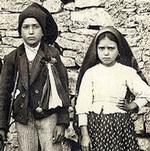Fathers of the Church
Epistle Xl: to Marinianus, Bishop of Ravenna
by Gregory the Great in 590-604 | translated by James Barmby, D.d
Gregory to Marinianus, &c.
Great infirmity constrains us, dearest brother, from which if we were free, we should seem justly blamable. But since, while we are in this fragile body, we cannot subsist but by subservience to its weaknesses, we ought not to blush for what necessity imposes on us. And so, since physicians all say that to those who suffer from eruption of blood fasts are injurious, we exhort thy Fraternity by this present address that, recalling to mind what thou hast been accustomed to endure from sickness, thou by no means impose on thyself the labour of fasting. If, however, by the mercy of God, thou knowest thyself to be so far improved in health as to have sufficient strength, we permit thee to fast once or twice in the week. But of this it befits thee before all things to take care, that thou in no wise subject thyself to any feeling of irritation, lest the sickness, which is believed to be now lighter and as it were suspended, should be experienced afterwards more heavily through exasperation.
Taken from "The Early Church Fathers and Other Works" originally published by Wm. B. Eerdmans Pub. Co. in English in Edinburgh, Scotland, beginning in 1867. (LNPF II/XIII, Schaff and Wace). The digital version is by The Electronic Bible Society, P.O. Box 701356, Dallas, TX 75370, 214-407-WORD.



